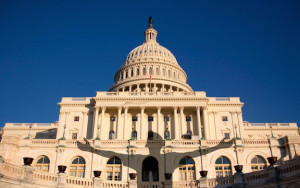Present-day liberalism (not the liberalism of Gladstone or Franklin Roosevelt) is inspired by two apparently contradictory impulses: a libertarian impulse and a totalitarian impulse. That is to say, American liberals are in love with the ideal of virtually unrestricted personal liberty, and at the same time they are in love with the ideal of an immensely powerful centralized government. They are impatient with almost all limitations on personal freedom (except those that prohibit us from doing tangible and evident harm to another person), but they are confident that the federal government of the United States of America, given enough power and funding and time, can solve all our social problems.
How can this be? How can anybody simultaneously be both a libertarian and a totalitarian without suffering serious headaches of cognitive dissonance? Let’s look at how liberals pull off this amazing trick.
Their libertarianism is a negative thing. They are like the anarchists of old in their wish to destroy all forces that limit the freedom of the individual. The anarchists looked for a dramatic revolution that would destroy so-called enemies of freedom – family, church, conventional morality, state, and capitalism – in a virtually overnight manner. Today’s liberals may be described as slow-motion anarchists: they are reformers, not revolutionaries; they wish to destroy the enemies of personal liberty gradually, not all at once.
In fact the process of destruction is so gradual that many liberals, perhaps even most, don’t realize that they are on a road whose terminus ad quem is total destruction. Some liberals would of course be horrified if they could see this. Every so often a liberal does see this, and soon turns conservative.
For the time being, liberals, whether they realize or not whither the sacred cause of personal liberty is tending, do no more than undermine the allegedly restrictive institutions, not absolutely ruin them. But this process of undermining has no stopping-place, short of utter ruination.
Those of us who were born before the 1960s have had the privilege of watching liberalism undermine one “enemy of freedom” after another – the married two-parent family, Christianity (except for Mormonism and very conservative Protestantism), traditional sexual morality, patriotism, belief in a God who commands and judges, and of course taboos against abortion, suicide, and euthanasia.
But from this perspective, nature too is an enemy of freedom. By what right does nature, simply by arbitrarily or accidentally providing me with a male reproductive system, condemn me to be a man and forbid me to be a woman? How unfair! How outrageous! To the really up-to-date liberal, we have a human right to choose our sex – or gender as they prefer calling it. If, though male, I elect to be a woman, I’m a woman. (All hail Bruce Jenner!)
But if I declare, based on what I look like in the shower, that I’m a man, the liberal will explain to me, “Yes indeed, you’re a man. But that’s not because of what you look like when naked. It’s because you have elected to be a man. You have chosen to construct yourself as male. And that’s just fine. We Americans, who rejected the tyranny of King George III and the tyranny of slavery, now, in the latest extension of that glorious tradition, reject they tyranny of biological nature.”
But there’s an affirmative side to present-day liberalism, super-big government. Why are liberals in love with this Leviathan? For at least three reasons:
1. To repair the enormous social damage that has been done, is being done, and will continue to be done by the destruction of family, religion, morality, etc. Only big government can be a father to fatherless boys and girls, a husband to unmarried mothers, a guide to persons who lack a moral compass, a savior to those who have discarded religion, and so on.
2. Disbelieving in the authority of nature, the liberal imagination constructs ideal future utopias, and liberals believe that super-big government is the only force that might conceivably bring these utopias about.
3. True liberals are either atheists or near-atheists (by a “near-atheist” I mean either an agnostic or a very liberal Christian or Jew). But they are also heirs to an ancient monotheistic civilization, which means they cannot help but feel that there must be a Supreme Being someplace. If there’s no God, where can they find this Supreme Being?
They can find it in a government that is, if not all-powerful, at least very powerful; a government that is, if not all-benevolent, at least very benevolent; and in a government that is, if not all-wise, at least very wise – thanks in no small measure to the very intelligent and very benevolent liberals who will staff this near-omnipotent government. For the liberal, the super-state is lord and savior.















